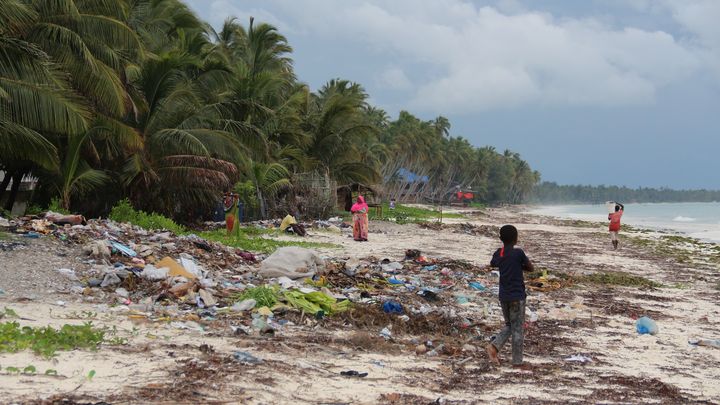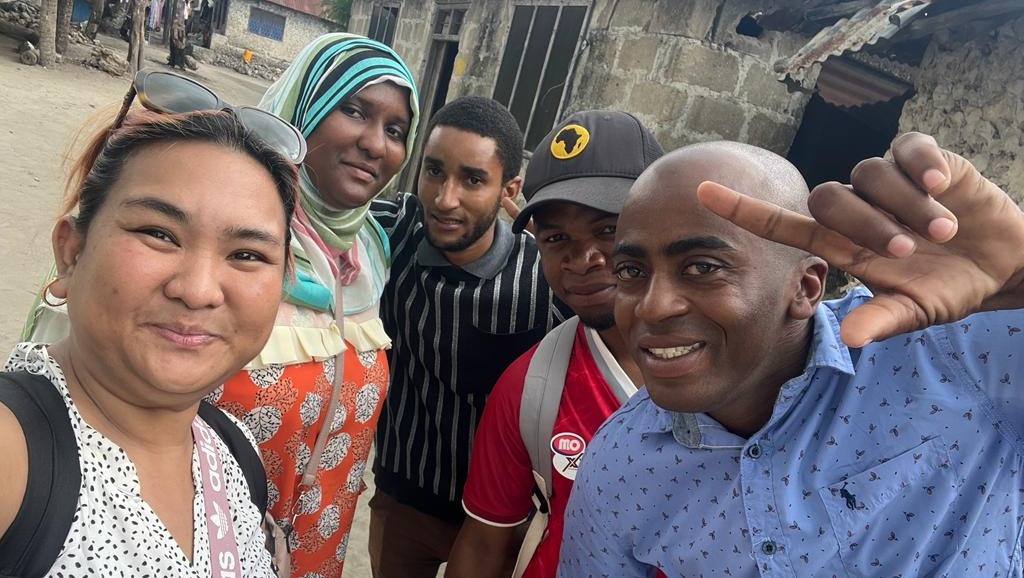
Plastic Bottles Upcycling Project in Nungwi
Donation protected
Like so many places on the planet, Tanzania struggles with plastic waste. The consumption of bottled and plastic-bagged drinking water in Tanzania has increased largely because of the deteriorating quality of tap water. Plastic is often thrown out haphazardly because of a lack of waste management infrastructure. This plastic can then litter the landscape or get into the water supply, posing a risk to both people and wildlife.
The impact of plastic waste on the ocean is a growing concern, as it not only poses a threat to marine life, but also contributes to climate change. Plastic production is a significant source of greenhouse gas emissions and carbon dioxide, making it a major contributor to global warming.
An Erasmus+ project called mPreneur recently brought me back in Tanzania to learn and conduct a study visit to Tanzania's startup ecosystem.
*To know more about mPreneur: https://mpreneur.myouth.eu/*
During our study visit in Zanzibar, I met a group of students from SUZA (State University of Zanzibar) called 'Sustainable Savers' who are working on a coastal waste project in Nungwi, a large village located in the far northern end of the island which is famous for its blindingly white sand, 5 star resorts, and absolutely breathtaking water colors.
Plastic pollution is becoming a growing concern in Nungwi. Unquantified amounts of plastic materials are discharged into coastal waters and have detrimental effects on local marine environments. With the expansion of the tourism industry, waste increasingly originates from tourism activities and ends up into the ocean due to poor management of solid waste postconsumption. However, according to the field study conducted by the Sustainable Savers, the main source of plastic pollution in Nungwi is from the local households.
I was personally surprised and curious at the same time when I saw their data. Hence, I kept in touch with the students and asked them if we can go to Nungwi so I can see the situation myself.
During our visit in Nungwi, we conducted interviews and FGDs (Focus Group Discussions) using the 'Design Thinking' approach with the locals and community leaders such as the diwani (councilor) and sheha (chairman).


According to them, the main problems are:
1. Lack of dust bins
2. Poor waste management
3. Delays in waste collection
4. Lack of education on waste reduction or prevention
5. Lack of initiatives by the LGU (Local Government Unit) and stakeholders
During our discussions, I couldn't help thinking on how I can do something to give a little help, being a sustainable and community development specialist for about a decade now.
With the support of the Sustainable Savers and the local leaders and stakeholders, we will be holding a series of workshops to educate and train the local community on waste reduction & prevention, proper waste management, and environmental education (non-formal).
We just don't want to give the local community dust bins which they believe would solve the problem. We want them to be a part of the solution. Hence, we want to build dust bins with them using their very own plastic wastes.
Our first step would be conducting a workshop on upcycling plastic bottles to planters and dust bins, among others.
And in order to do that, we have started a group of volunteers called 'ZEST' which stands for Zanzibar Environmental Sustainability Transformation. Our team is composed of volunteer students in the field of Geography & Environmental Studies, Tourism & Marketing Management, Arts & Design, Agriculture, and IT from various universities and colleges in Tanzania.
Being based in Austria, I am managing the project and volunteers remotely and I am responsible for fundraising.
As of this writing, I have successfully sent €151.06 (380,674.17 TZS) to our team in Zanzibar.
Aug 29, 2023: €20.00 (50,674.17 TZS)
Aug 30, 2023: €38.04 (100,000.00 TZS)
Sep 09, 2023: €93.02 (230,000.00 TZS)
We need your donations to make this project happen. We will use the donations to buy materials and tools to conduct the workshops and to cover the expenses of the volunteers and experts.
As a donor, we will send you a regular updates on the progress of the project and transparency report on the donations received and how are they used.
"We are on earth to take care of life. We are on earth to take care of each other." - Xiye Bastida, Mexican Climate Activist






Organizer
Elly Gragas
Organizer
Linz, O